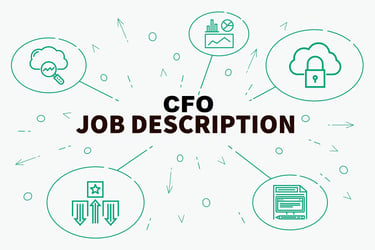 Have you ever tried to find something when you could not adequately describe what you were looking for?
Have you ever tried to find something when you could not adequately describe what you were looking for?
Imagine going to buy a pair of pants and when the salesperson asks what you are looking for all you tell them is “gray pants.” How long do you think it will take to find exactly what you are looking for? And how likely is it that you will end up getting tired and frustrated settling for something that is not really what you wanted? In this example, the best outcome is that you find the perfect pair of pants after an arduous search, and the worst outcome is that you end up with pants that fit poorly or are too formal or casual for your needs.
Now apply that same scenario to hiring and think about how difficult it is to find the right candidate for the role when you do not have a clear vision of what you are looking for and what your expectations are for the role. The difficulty is ratcheted up and the likelihood of a negative outcome is much greater.
When the role you are hiring for is a senior leadership position a bad hire can derail the company’s strategic plans. A CFO is in an especially critical role to support growth initiatives, making a hire into this role even more critical to the overall success of the organization. As a result, a job description for a CFO should be customized to fit the specific needs of the business and incorporate the nuances of the role.
This is often easier said than done, especially at companies where there is an immediate need for a CFO due to rapid growth or the sudden departure of a former CFO. When there is a pressing need to hire someone quickly, companies are more likely to cut corners by:
- Using a generic CFO job description template
- Reusing an old job description from the CFO’s predecessor
- Modifying a job description from a lower-level financial role (like a Controller or Senior Finance Manager) to include more advanced responsibilities
Instead of taking one of these shortcuts, it is always best to craft a clear and thorough job description that not only defines the role but also establishes industry experience requirements.
Defining the Role
Before the hiring process can begin, the CFO role must be clearly defined. This is a key step regardless of which level of CFO you are looking to hire; however, it is especially crucial when the company needs help determining whether the role should be full-time or whether a part-time option would suffice instead.
Enumerate the organization’s financial needs and decide which areas of the business the CFO will be responsible for and how much time these activities will take to flesh out the role. A full-time CFO will oversee the overall financial management of the company, spanning accounting and finance. They may also have responsibilities that overlap into IT, legal, and HR.
Once the role has been constructed, determine if there is a particular career path that is preferable for the specifics of your CFO role. Most often, a CFO will have started out in one of the following areas:
- Public Accounting/CPA
- Investment Banking
- Company Accounting/Corporate Training
Next, articulate what you are looking for in the way of relevant industry experience, cultural fit, and availability. While industry experience may not be essential from a skillset perspective, it may be strongly preferred to ensure an organizational fit.
Prioritizing Industry Experience
Some organizations may require that candidates have relevant industry experience, which is where utilizing a recruiter can be especially beneficial. A company may have specific regulatory requirements to adhere to or specialty financial skillsets to consider that make looking for a candidate with previous industry experience essential.
For instance, nonprofit organizations using fund accounting will likely want to hire a CFO that has significant experience in this area. Similarly, manufacturing, construction, or professional services may require that a CFO has a strong background in cost accounting.
However, industry experience is not simply a conversation around the types of accounting that a CFO candidate has used previously. It may also involve the activities that a company is currently engaged in because of its life stage. For example, a high-growth venture-backed start-up will have very specific needs that they are looking for in a CFO.
Remember to consider the capabilities that are already present within the company. In some cases, having a controller who has significant industry experience may be enough to compensate for less industry experience in the CFO role.
Finally, industry experience often has more to do with the culture and personality of the industry than the financial components. Think about the difference between an entrepreneurial high-tech software company versus a vertically integrated agricultural company. Finding the right style match for either of these types of organizations is essential to ensure mutual satisfaction on the part of the company and the candidate.
Searching for a CFO
When searching for a CFO, the CEO, management team, and board of directors should reach out to their contacts to network and let them know the company is looking to bring someone in. Start conversations with trusted business colleagues and current service providers to determine if they know anyone who would be a good fit.
If your HR department has the internal resources to conduct the search on their own, you can utilize your own in-house personnel to look for your next CFO. Otherwise, it is best to seek external help. Engage with recruiters to hire a fractional CFO or controller or an executive search firm to hire a full-time CFO.
When you are ready to begin your search, reach out to us for help finding your next CFO.





